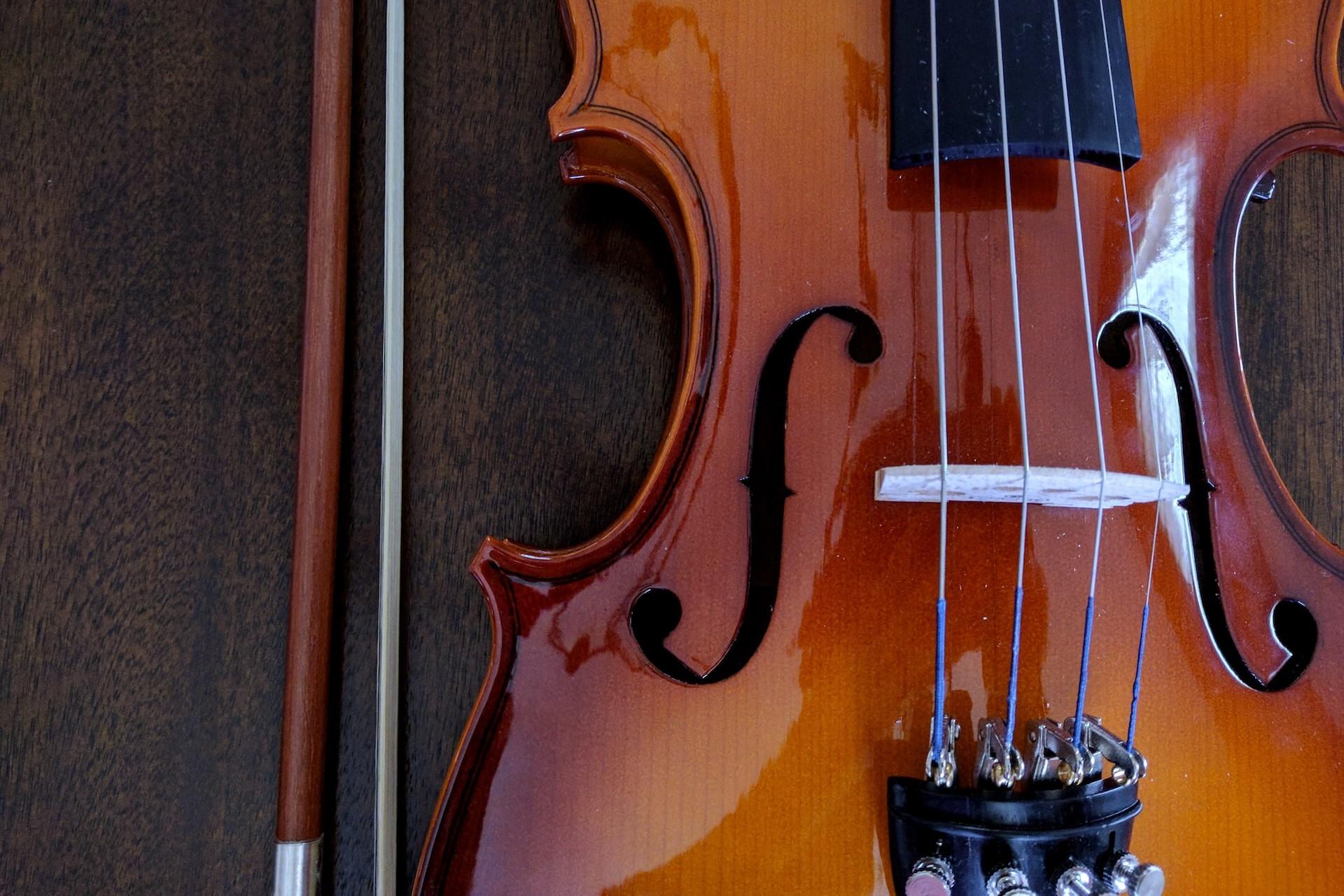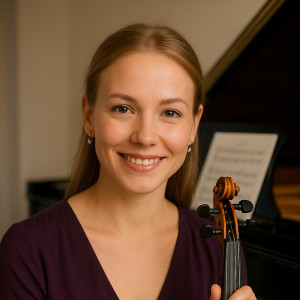The violin is one of the most popular musical instruments. Only the piano and the guitar are more popular, but it's arguably one of the most difficult ones to learn, too.
This isn't to say that the guitar and piano aren't difficult instruments to learn, but the barrier to entry is slightly higher for violinists simply because of just how awful the instrument sounds when you first pick it up.
A piano will immediately sound nice by simply pressing a key and with a slight amount of practice, you can get a passable sound from strumming a guitar, but the violin doesn't sound like it wants to be played when picked up by an amateur.
However, with the right approach, you can get a good sound out of a violin, but it will take hard work and practice. Here's our best advice for playing the violin well.

Get the Right Violin
Starting to play the violin will mean getting a violin. We're not suggesting that you go out and invest a fortune in your first violin. After all, a novice with a Stradivarius will still sound terrible.
Instead, get the appropriate violin for you. This includes getting the right size of violin, which is particularly important for children who mightn't be able to play a full-size violin.
Head to your local music store and ask a staff member what you'll need. Every musician is different so it's always a good idea to have an expert help you choose your first violin.
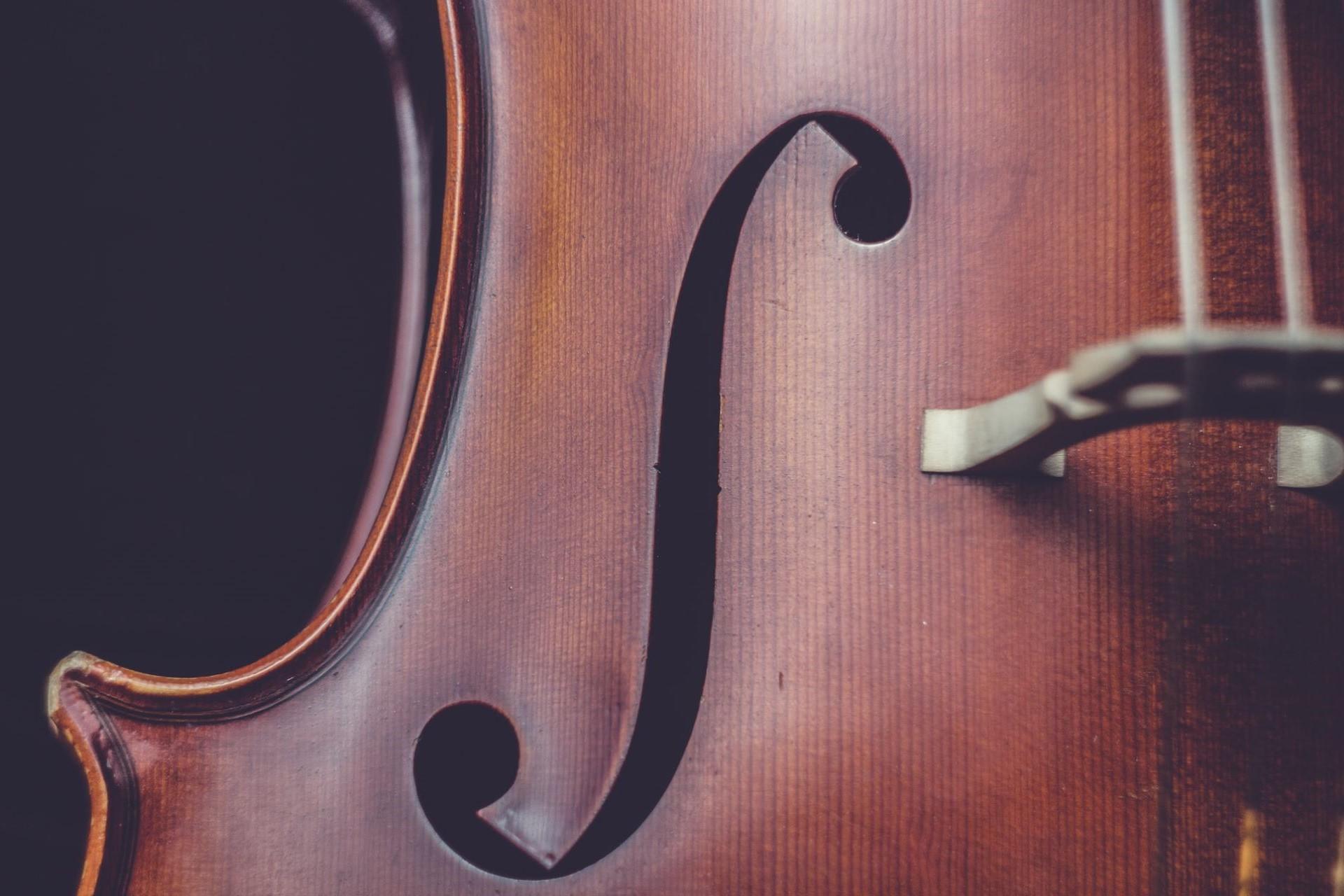
Take Care of Your Violin
The right violin will quickly sound terrible if you don't take care of it. Maintenance is an important part of owning any musical instrument and while a well-maintained violin won't sound great if you don't know how to play it, a poorly-maintained violin can sound pretty bad even if a virtuoso is playing it.
A good case will help protect your violin, but you need to think carefully about where you store your violin. Temperature changes and extreme conditions can also damage your violin.
The same is true for your bow and while you can more cheaply replace it than your violin, you should still take good care of both.
Focus on Posture
Your posture, and specifically how you hold your violin, is an essential part of playing well. Your posture will allow you to get the best sound possible out of your violin and how you place your violin against your shoulder and chin also affect the tone of the instrument.
The right posture will also allow a violinist to better control their bow, which can improve the sound and make playing the violin easier.
Good posture is also good for your health and you're less likely to suffer repetitive strain injuries or aches and pains with proper posture.
Learn How to Hold the Bow
How you hold your bow is part of your overall posture, but it's also something that you'll learn to do separately.
This is a key part of playing the violin well and something you'll have to learn before you start playing anything on your new instrument.
Study the Fundamentals
As with any musical instrument, you should learn to walk before you run. A good foundational knowledge of how to play the violin will ensure that everything you play sounds good no matter how simple or complex the piece is.
Start by ensuring that you make a good sound with your violin by learning proper technique and posture and by taking care of your instrument.
Starting to play the violin with a good foundation can help you avoid bad habits that can be much harder to deal with further down the line.
Warm Up
The violin is a beautiful musical instrument but it can also be incredibly unforgiving. In the same way that you have to treat it with respect in terms of maintenance, you should also warm up before playing it.
Warming up can help you to prepare physically for playing your violin and it can even reduce the risk of injury, just like it does with sports. By warming up, you can also prepare yourself mentally.
Practice Regularly
Unless you're incredibly talented, you're going to have to practice playing the violin. The more you practice, the better you'll become.
Even the very best violinists in the world spend hours each day practising and while you might not have the time for practising quite as much as they, you should still practice regularly.
It's better to practice little and often than once a week for several hours, but it's better to practice than not at all.

Learn How to Read Sheet Music
There'll always be a debate over how important formal musical education is, especially with plenty of incredible musicians who never studied music or learned how to read sheet music.
However, we'd recommend learning to read sheet music and studying music theory because it'll give you access to so much music.
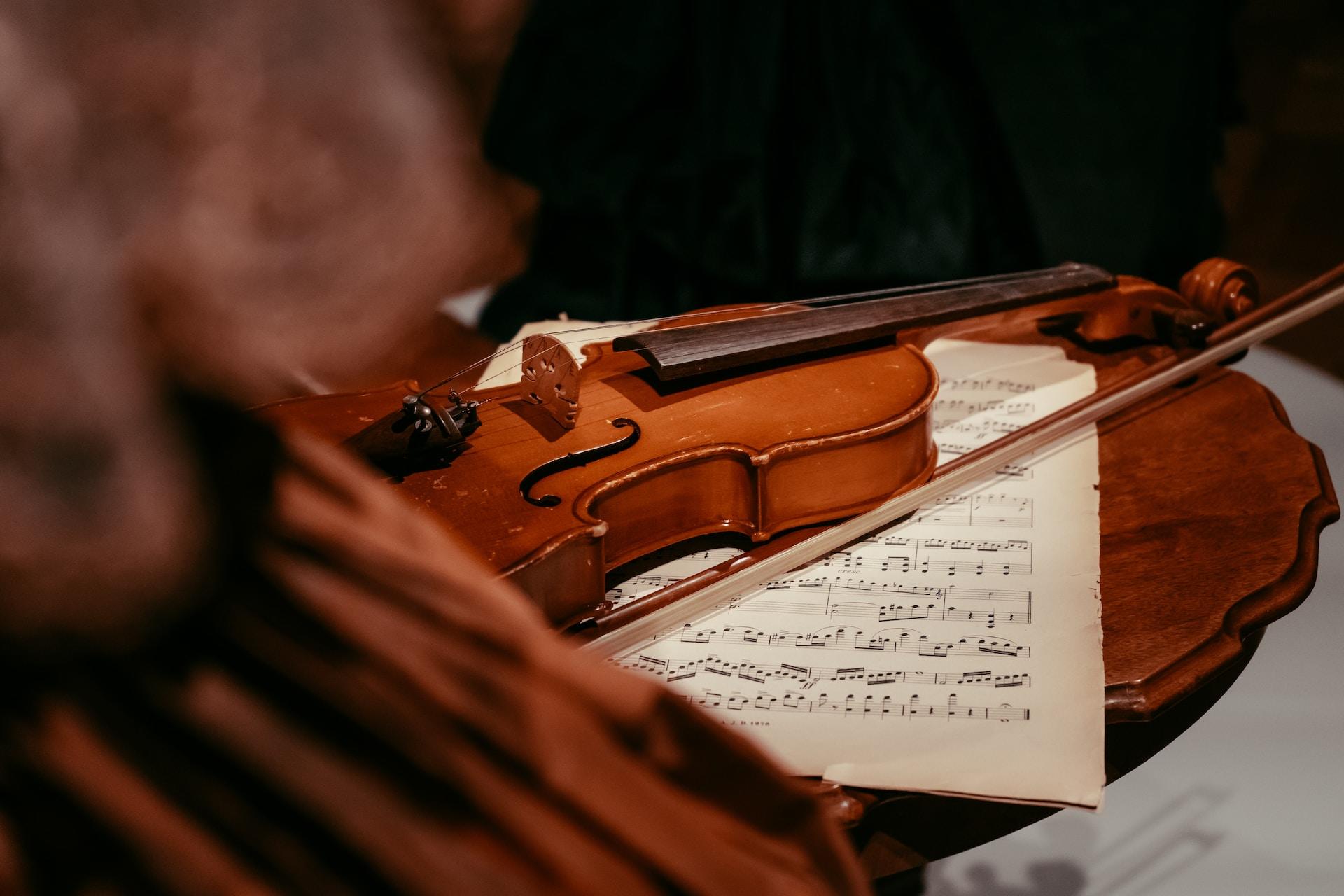
Not only will you gain a better understanding of how music works and improve your playing, but you'll also be able to learn new pieces far more quickly than you could by ear or through tutorials.
Memorize Pieces
If you learn how to read sheet music well enough, you'll be able to sight-read. Sight reading is the ability to play music from sheet music without ever having seen or heard the music before.
However, it's worthwhile memorising important pieces, especially those that you perform regularly for recitals, auditions, or solo or ensemble performances.
This is particularly useful if you don't have the music on hand or are simply practising, too, as you won't have to constantly be reaching for the sheet music for different pieces and can focus on your playing.
Listen to Music
It might sound obvious, but regularly listening to music is a great way to get better at playing it. The more familiar you are with a piece that you're learning, the easier it'll be to play.
Listen to recordings of the greatest violinists playing the pieces you want to learn as well as lots of other kinds of music (more on that in a moment).
Expand Your Musical Horizons
Inspiration can be found in the unlikeliest places and while you may have a preferred musical genre, you'll become a much better musician by expanding your musical horizons.
Listen to different genres and lots of different kinds of music to learn more about music. Even if the genres you're listening to don't even feature a violin, you can still learn about music from different approaches to melody, harmony, rhythm, etc.
Use a Metronome
Keeping time is a hugely important of playing any musical instrument and while you'll certainly get away with looser timing if you're playing your violin on your own, if you want to play with other musicians as part of a group, band, quartet, ensemble, or orchestra, timing is essential.
Get into the habit of playing with a metronome. This doesn't have to be a physical metronome as you can now get apps and digital solutions for keeping time.
Record Yourself Playing
The best way to see where you're going wrong is by recording your playing and listening back to it critically.
While playing the violin, you're probably focusing too much on playing to listen, but by recording yourself, you can hear yourself the same way any audience member would.
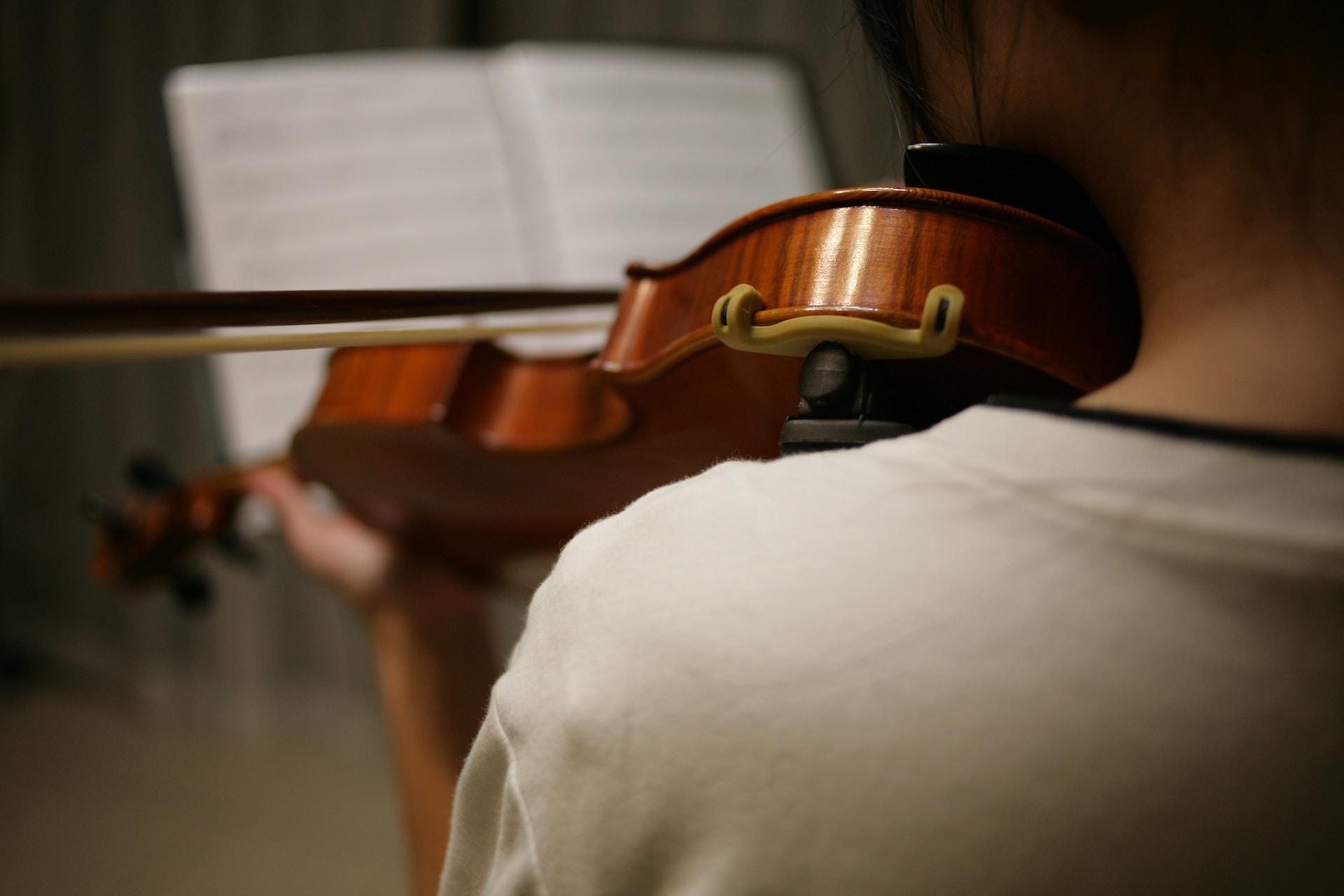
If you have the means, you might want to film yourself playing so you can also evaluate your posture and technique while playing.
This can be useful if you're working with a teacher or tutor, too, as you can show them the recordings or videos from your practice sessions and get feedback from them.
Take Care of Yourself
You'll get the most out of your violin practice by taking care of your body, mind, and soul. Living healthily can help improve your playing and simple things like a good night's sleep can help you to play much better.
Your mood is reflected in your violin playing, too, and you won't play as well if you're stressed, for example.
Improve Your Technique with Lessons or Tuition
Speaking of tuition, violin lessons for beginners are probably among the best ways to improve when it comes to playing a musical instrument, especially one as tricky as the violin.
Formal music education is how many violinists learn, but there are downsides to this as the teaching approaches used aren't always adapted to the student, how they like to learn, or their learning objectives.
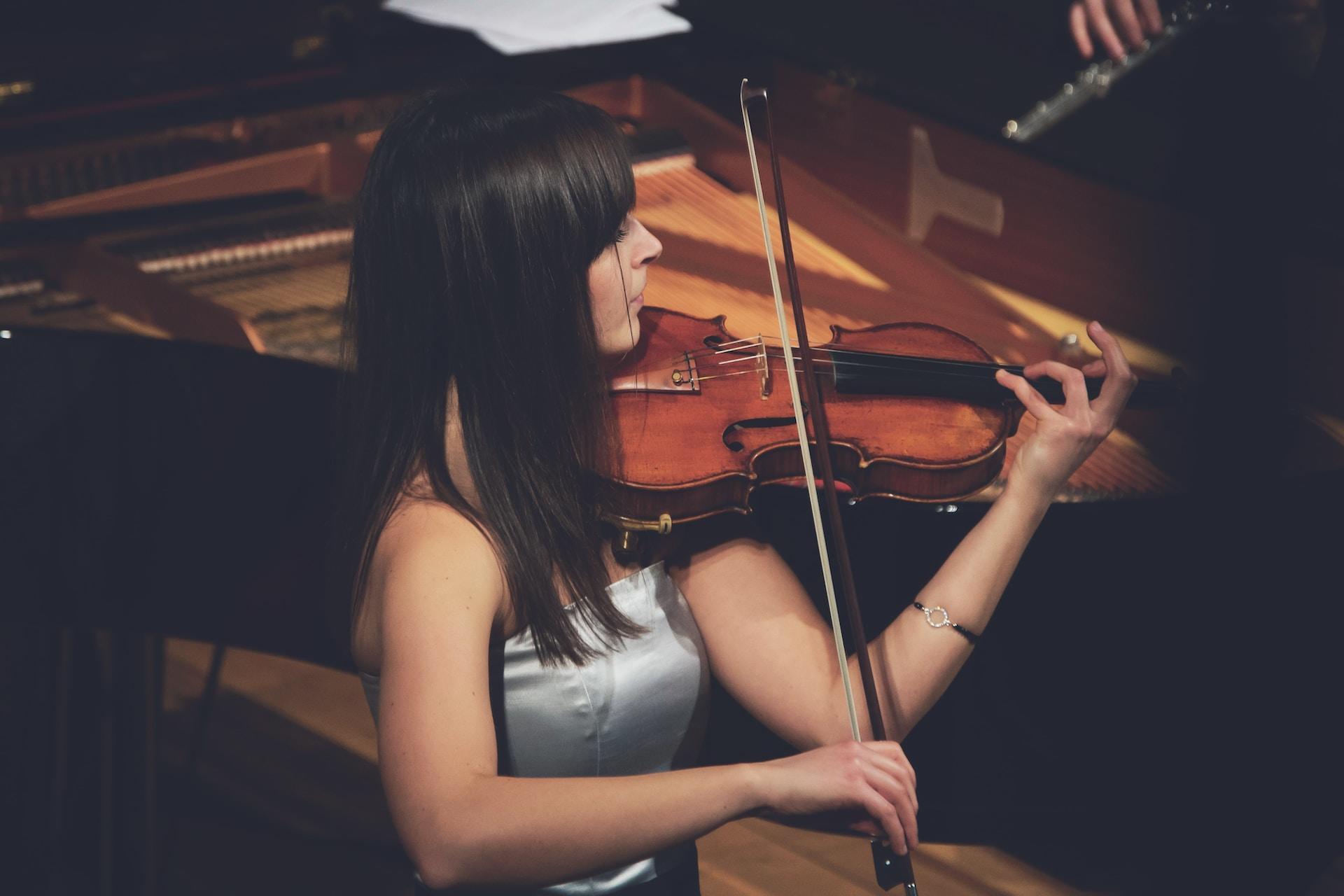
Fortunately for you, you can search for online violin teachers all over the country and around the world on the Superprof website!
Whether it's in person, online, or as part of a group, many of the tutors offer the first session for free so you can try a few out before deciding which one's right for you.
Summarise with AI:

